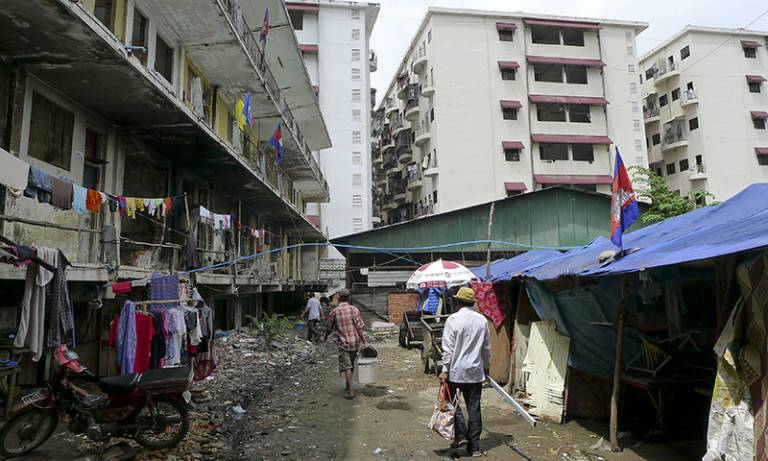DPU's Giorgio Talocci awarded IJHP ‘Best Early Career Article’ Prize
14 September 2017

Congratulations to Giorgio Talocci who has been awarded the International Journal of Housing Policy Best Early Career Article Prize for his article ‘The de-politicisation of housing policies: the case of Borei Keila land-sharing in Phnom Penh, Cambodia’ grounded on his PhD research and the work in the BUDD Practice Module action research with our Cambodia's partners.
In 2017, the International Journal of Housing Policy organized its first Best Early Career Article Prize with the main goal of helping early career researchers to get more exposure and to further their academic career. Early career researchers were encouraged to submit critical articles that link housing policy to larger societal developments. The jury was particularly interested in articles that took on a cross-country comparative approach comparing housing issues in multiple countries.
The jury agreed that Giorgio’s article was very interesting, lively and thoughtful. The jury argued that: “Talocci’s article is by far the most ambitious of all the submitted articles in terms of engaging with ideas and the global context, yet at the same time painting a vivid and convincing picture of the housing/political realities in the locality”. Giorgio will be awarded a 500-euro conference bursary and certificate, in addition to time-limited free journal access.
 Close
Close

